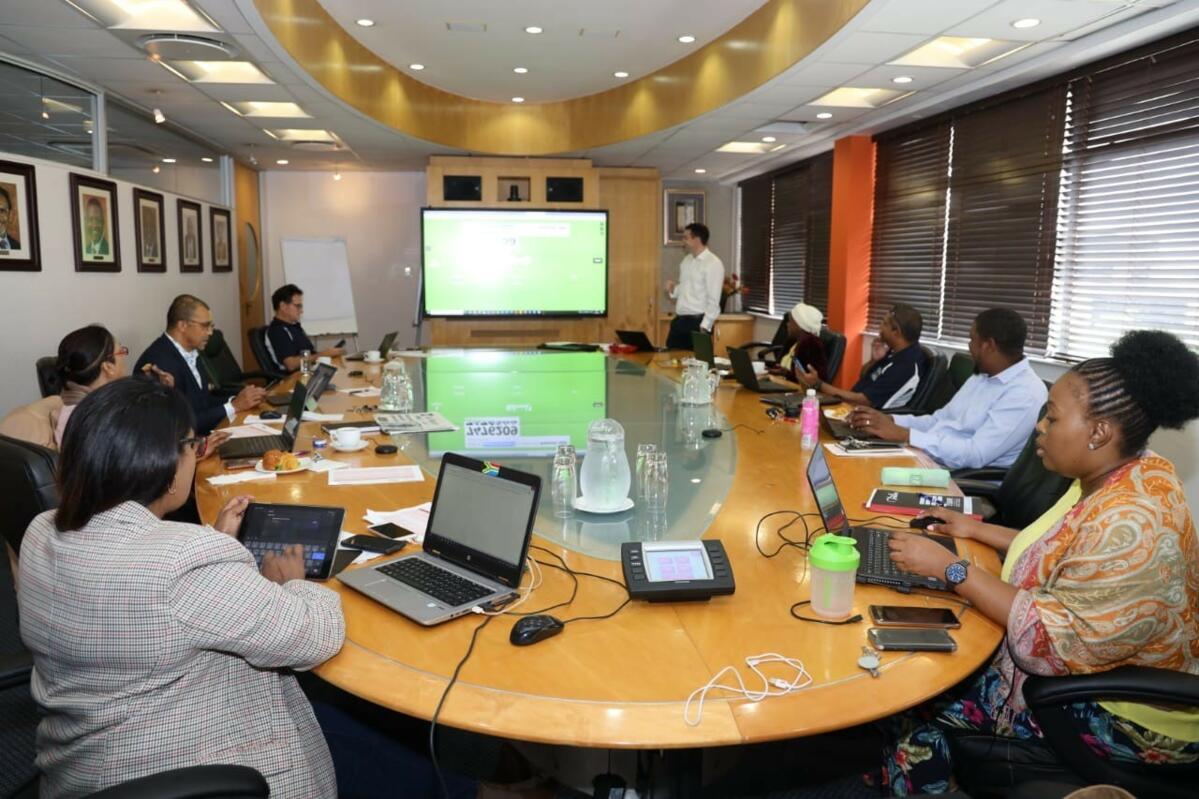SUCCESSFUL SIPPO TRAINING ON CUSTOMER RELATIONSHIP MANAGEMENT PROCESSES FOR BSOs IN SOUTH AFRICA
The importance of having well developed CRM systems and practices in BSOs

This training was in line with SIPPO’s objective of institutional strengthening of BSOs. During the assessments undertaken by the International Trade Centre (ITC) together with SIPPO on the BSO partner Countries in 2017, a need was identified for good quality Customer Relationship Management (CRM) systems in most of the BSOs, due to the absence or lack of such appropriate systems in these organisations.
SIPPO therefore procured a service provider to develop a customized CRM system, designed and adapted for the specific business needs of BSOs involved in trade promotion activities. This system is a tool to assist BSOs in managing their data bases, planning and implementing events and in facilitating the daily work tasks involved with trade promotion activities. The B2BTrace system was therefore developed and launched with BSOs in the 11 SIPPO partner countries having a trial period of a year to test the system free of charge, before deciding whether they would like to use the software option or not.
As part of SIPPO’s institutional strengthening of BSOs capabilities and systems, training of the BSOs in CRM practices in general in the eleven SIPPO partner countries is being undertaken by Mr André Geissmann, Programme Manager from SIPPO Head Office, who undertook a visit to South Africa to perform the training sessions from 24-28 February. This involved training of the SIPPO South Africa office team, followed by sessions with three BSOs; the dti, TIKZN and SAEOPA.
The training included three parts:
Firstly, “Why CRM?”
Secondly, “Why B2BTrace?”
Thirdly, hands-on training on CRM processes. The topics covered were selected according to the needs of the BSOs, gathered through a survey to understand their main interests and needs in CRM, which included contact management, B2B events (trade fair) planning and implementation, email communication templates and recording customer history.
The training session held at the dti over a full day was attended by 16 officials involved with export promotion and development and events planning and management.
For the training on trade fair preparation and implementation, each of the training sessions included the practical trade fair participation flow chart, including the general SIPPO, “state of the art” flow; an overlay of B2B Event Management; as well as a checklist for B2BTrace functionalities. This very detailed, practical flow chart illustrated the advantages of using a CRM tool such as the B2BTrace system for the successful planning and implementation of trade fair participation, with the tool being used at virtually all stages of the process.
The training session at the offices of the SIPPO BSO partner, Trade and Investment KwaZulu-Natal (TIKZN), took place over one and a half days and was the most comprehensive of the three training sessions undertaken. Eight officials from the export promotion and development team, as well as management and the technical team participated in the training session.
Additionally, a day’s training session was held at the Embassy of Switzerland for the CEO and board member of the Southern African Essential Oils Producers Association (SAEOPA), with collaboration from the Chief Technical Advisor of the UNIDO Global Quality Standards Programme in South Africa.
Participants in the training sessions with the three BSOs expressed their appreciation and gratitude to SIPPO and commented very favourably on the quality of the training, the comprehensive programme and practical interactive nature of the sessions. They felt that they had all benefited from the training and realised the importance of having CRM processes in place.



 Vietnam
Vietnam











